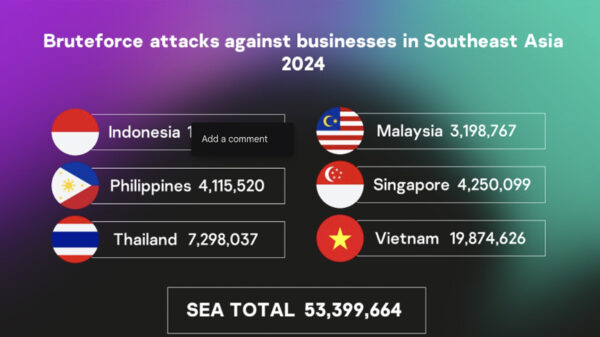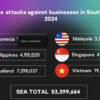With 90% of people in employment going online several times a day, it can be hard for most workers to keep their private and work-life separate during the working day (and beyond). The recently published Global Privacy Report from Kaspersky Lab reveals that one-in-two (59%) consumers choose to hide social media activity from their boss. This secretive stance at work also extends to their colleagues, with 52% of people also preferring not to reveal online activities to their co-workers.
The average employee spends an astonishing 13 years and two months at work during their lifetime. Interestingly though, not all this time is directly related to solving work tasks or earning a promotion: almost two thirds (64%) of consumers admit visiting non-work-related websites every day from their desk.
Not surprisingly, nearly a third (29%) of employees are against their employer knowing which websites they visit. However, more interestingly, one-in-two (52%) are even against their colleagues knowing about their online activities. This probably means that colleagues constitute an even greater threat to future perspectives of an office slouch or maybe the relationships with colleagues are more informal and therefore, more valuable.
On the contrary, social media activity appears to be a less private domain for many and therefore, more suitable for sharing with colleagues but not the boss. This is probably because workers fear harming the public image of a company or interest in decreased staff productivity motivates companies to monitor employees’ social networks and make career changing decisions based on that.
Such policies have led to one-in-two (59%) people saying that they don’t want to reveal their social media activities to their boss and 54% even don’t want to disclose this information to their colleagues.
A further 34% are against showing the content of their messages and emails to their employer. In addition, 5% even said that their career was irrevocably damaged as a consequence of their personal information being leaked. Thus, people are worried about how to build a favorable internal reputation and how not to destroy existing workplace relationships.
“As going online is an integral part of our life nowadays, lines continue to blur between our digital existence at work and at home. And that’s neither good or bad. That’s how we live in the digital age. Just keep remembering that as an employee you need to be increasingly cautious of what exactly you post on social media feeds or what websites you prefer using at work. One misconceived action on the internet could have an irrevocable long-term impact on even the most ambitious worker’s ability to climb the career ladder of their choice in the future,” said Marina Titova, Head of Consumer Product Marketing at Kaspersky Lab.
To ensure workers don’t fall prey on internet threats at work, there are some core guidelines to adhere to in the digital age:
- Don’t post anything that could be considered defamatory, obscene, proprietary or libelous. If in doubt, don’t post.
- Be aware that system administrators may at least in theory be informed about your web browsing patterns.
- Don’t harass, threaten, discriminate or disparage against any colleague, partner, competitor or customer. Neither on social networks or in messages, emails, nor by any other means.
- Don’t post photographs of other employees, customers, vendors, suppliers or company products without prior written permission.
- Start using Kaspersky Password Manager to ensure your social media and other personal accounts are not at risk of unauthorized access by someone else in an office. Install a reliable security solution such as Kaspersky Security Cloud to protect your personal devices.

















































































































